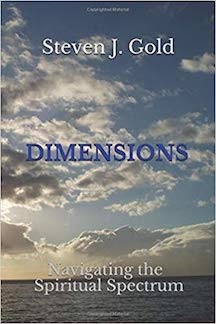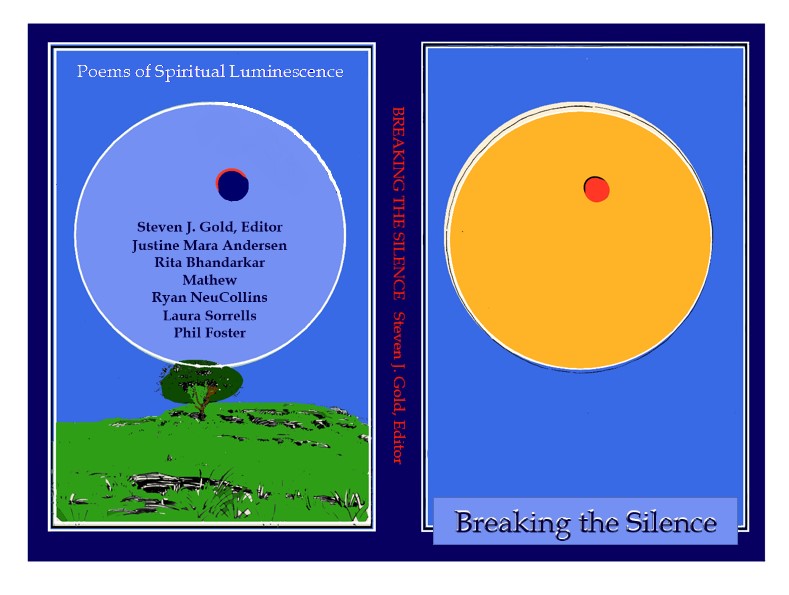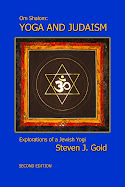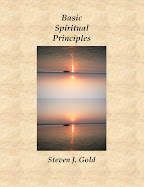Quote of the Week 419 - Listend/Hearing for Non-material Sustenance
Quote of the Week 419 - Listening/Hearing for Non-material Sustenance
Every one who is thirsty, come and drink. He who has no money, come, buy and eat. Come, buy wine and milk without money and without price. Why do you spend your money for that which is not bread and your labor for that which does not satisfy? Listen carefully to Me, and eat what is good. Let your soul delight in abundance. Incline your ear, and come to Me. Hear, that your soul will live…
--Isaiah 55:1-3, The Living Torah translation by Rabbi Aryeh Kaplan
Meditation (Click your selection, scroll down to view it)
- Audio Link: Interview - You Cannot Avoid Mystery; Eastern Meditation
- Audio Link: A Foundation for a Fruitful Meditation Practice: Science of Breath/Pranayama/Relaxation - Theory and Practice
- Audio Link: (Scroll to 11/04/18 entry) The Breath and Life Force; Guided Meditation - I Am an Empty Shell, Therefore I Am Full, etc.
- Meditation Basics - Expanded Version
- Meditation Basics - Condensed Version
- Mantra Meditation Basics
- Nada Meditation - Anahata/The Unstruck Sound
- Jewish Yoga Meditation
- Hebrew Mantras
- Hebrew Mantras, Part Two
- Hebrew Mantras, Part Three
- Hebrew Mantras - Adonai Hineni
- Healing Meditation: Ruach El Shaddai/Breath of Balance
- Meditating, Eating and Sleeping
- Shortcuts to Spiritual Development?
- Audio Link: Guided Meditation - I Am and Empty Shell, Therefore I Am Full; A Meditation on Emptiness and Dark Luminescence Based on the Opening Lines of Genesis
- Guided Meditation: The Stage
- Guided Meditation: I Am an Empty Shell, Therefore I Am Full; A Meditation on Emptiness and Dark Luminescence Based on the Opening Lines of Genesis
- Guided Meditation: The Rod, The Staff, and The Star
- Torah-Veda Meditation Class Site
- Interspiritual Contemplative Group
CURRENT TEACHING SESSIONS
Thursday, January 28, 2010
Quote of the Week 122 - The Visible Universe
-- From an article in a recent “The Week” magazine discussing The Large Hadron Collider, a huge tunnel built by scientist underground between France and Switzerland. Physicists are using it to collide atoms at speeds close to the speed of light in attempts to produce the theoretical subatomic particle named the Higgs boson, the so-called God particle. It is so named as it is designated as the piece of the atom that endows all other pieces with their mass, and as such is the theoretical primal building block for the rest of creation. Physicists are hopeful that being able to generate an actual Higgs boson will not only validate the prevalent theory known as the Standard Model, but that it might also help provide clues to the whereabouts of the remaining 96 percent of the universe’s invisible mass, which scientists call “dark matter”.
Thursday, January 21, 2010
Quote of the Week 121 - Praying
“You a prayin’ man, huh? What do you pray for? You pray for the world?” I never thought about praying for the world. I said, “I pray that I can be a kinder person.”
-from Chronicles, Volume One by Bob Dylan
Monday, January 18, 2010
Feedback Vote
I know that I recently stated my intention to publish on the blog more material from the upcoming book I am compiling, IVRI: The Essence of Hebrew Spirituality; 21st Century Perspectives on an Ancient Tradition. After I published the first one, I had some second thoughts. I am now asking for some feedback from readers of the blog in terms of a Vote either that you would like to see more of this content published on the blog before it comes out in the book, or that you would prefer to remain in suspense and wait until the book comes out, hopefully this Spring. I am looking to try to get a finger on the pulse of the readers of this blog and a little bit of feedback/interaction, so please respond one way or another. Your responses can be anonymous, but I ask on the honor system that you only vote once. I will not publish any more material from the book on the blog unless I get a minimum of 10 requests and if the votes to not publish do not outnumber the votes to publish. Thanks for your participation.
Thursday, January 14, 2010
Quote of the Week 120 - The Virtues of the Night
I laid down, listened to the crickets and wildlife out the window in the eerie blackness. I liked the night. Things grow at night. My imagination is available to me at night. All my preconceptions of things go away. Sometimes you could be looking for heaven in the wrong places. Sometimes it could be under your feet. Or in your bed.
-from Chronicles, Volume One by Bob Dylan
Tuesday, January 12, 2010
The Patchwork Quilt - Revised and Expanded
As I indicated in my last post, I am compiling a new book that I hope to publish sometime this Spring. The title is IVRI: The Essence of Hebrew Spirituality; 21st Century Perspectives on an Ancient Tradition. In addition to my own writings, I hope to have contributions from a few guest contributors. Most of my material in the book will be revised and expanded versions of articles previously posted on this blog. I also wrote some new material that I was holding off posting on this blog, but I have decided to go ahead and post most of it here, in the meantime. So following is the first of these chapters, which is an extensively revised and expanded version of an article previously posted on this blog. For any editors or critics out there, I welcome your corrections and comments.
The Patchwork Quilt
The Problem: Mankind in Spiritual Crisis Due to Conflicting Claims of Spiritual Superiority
I consider myself to generally be a positive and optimistic person, but there are times when I think it important to cast a critical eye on certain matters because of the negative implications they pose. I am therefore going to begin with a critique of some commonly-held beliefs among certain sectors of the Jewish community, relate them to other fundamentalist religious approaches, discuss the troublesome attitudes that they tend to foster, but end with a positive alternative. There is nothing really new concerning these matters and issues. They have been the subject of debate and difference among various sectors of the Jewish community for centuries. The debate became heightened in modern times with the emergence of the Reform movement and various other movements that have more recently appeared. There can be endless discussion of all manner of subjects within Judaism, but I am choosing to focus on a few that I find particularly troublesome, to add my voice to the ongoing debate, for whatever it is worth.
There are a few inter-related doctrines that are my focus. One is the notion of the “Chosen People” and related beliefs that Jews are to be a “Light Unto the Nations”, and “A Nation of Priests” to minister to all of humanity. Another is the belief that only Jews possess a “Godly Soul” or “Jewish Soul” or “Divine Soul”, which is the source of inherent righteousness and altruism. A corollary to this belief is that the souls of all non-Jews are derived from the source of evil (the unclean klipot), rendering them incapable of truly righteous or altruistic actions, although there is some acknowledgement of “the righteous gentile” as a curious, yet fairly rare, exception to this general rule.
These Jewish views claim that originally, all the nations of humanity were to share the same elevated spiritual status as the Jewish people. But beginning with events that resulted in The Great Flood, followed close on its heals by The Tower of Babel incident, the other nations lost their right to this status, culminating in the Jewish people alone experiencing the Revelation at Sinai combined with the bestowing of the Torah and the sealing of the Covenant with God. A popular ancient attendant homily is that God first made this offer one-by-one to every other nation, all of whom had a lot of questions as to the conditions of accepting, and all of whom rejected the offer on various grounds. One would not accept the prohibition against murder, because murder was a way of life in their culture. Another would not accept the prohibition against stealing, because stealing was a way of life in their culture. And so on and on until finally God came to the Jewish people, who due to the purity of their hearts and recognition of the nature of the Offerer, accepted the offer on blind faith, no questions asked. The Jewish tradition is replete with many such homilies feeding the psychic attitude of Jewish superiority and gentile inferiority. There are also contrary homilies designed to place a “humility check” on such attitudes, such as the story that the only reason the Jewish people agreed to the Covenant is because God held the entire Mt. Sinai over them, threatening to crush and annihilate them all with it if they did not accept. Thus the first recorded “offer that couldn’t be refused”. Another teaching holds that the Jewish people were granted the Holy Land not because of their superior merit, but on a relative scale, only because the inhabitants at the time were so much more depraved than they were.
Attendant to the notion that the Jewish people alone received the highest spiritual teaching available to mankind, contained exclusively in the Torah, is a corollary that only the Jewish people had the capacity to convey to the rest of the world laws of universal proper conduct and morality for the benefit of all, commonly known as the seven Noahide Laws. As a “nation of priests”, a “light unto the nations”, “God’s first-born”, the Jewish people will do all of the heavy lifting by adhering to their 613 commandments, while the rest of mankind need only obey these seven simple rules. Jewish people have saints who serve them, known as tzaddiks. And the Jewish people are to serve as the saints/tzaddiks, the cornerstone, to the rest of humanity. Judaism is only for a select few who are to serve as the heart for the organic being called mankind. Everyone else within the beautiful diversity of humanity has a unique and special part to play in this wonderful symphony we know as God’s creation. It’s just that the Jewish role is more special, as the conductor, as the concertmaster. Everyone else should be content to play second fiddle or some other complementary instrument.
Many traditional Jews remain confounded that the rest of the world just doesn’t seem to accept these simple facts and truths. After all, God says so, it is right there in the Torah. They have a profound inability to recognize and appreciate how condescending it sounds, and that other religions make similar claims about their followers and tenets based upon their interpretations of their chosen revealed scriptures. For Christians, the special designation described above passed on to those Jews and their descendants who became Christians by accepting Jesus Christ as Messiah, and it was lost to those who rejected that notion and remained Jews, still waiting for their Messiah. God says so. It is right there in the New Testament. Muslims claim they are the specially designated Abrahamic heirs of God/Allah and that the Jews and Christians distorted the scriptures to advance their own agendas. It says so right there in the Koran. And so it goes. People make such designations all of the time and attribute them to God, rendering them infallible and unassailable, even though they are human interpretations and concocted doctrines and dogmas of their chosen revealed scriptures whereby their religion is more special than anyone else’s. Everyone wants the comfort of certainty, authenticity, hope, meaning, purpose. The peddlers of certainty are quite willing to appeal to and manipulate this deep sense of yearning by thumping on their selected scriptures and offering up their absolute answers and solutions to every single question and problem. And they are quite willing to incite their followers to persecution, tyranny and war against others who do not agree with their version of what is absolute and certain. But such comfort should be able to be attained without such divisive machinations. Why does everyone have to be number one? Why does anyone have to be number one? These theological world views are what Reb Zalman Schacter-Shalomi has termed “triumphalism”. As he has pointed out, there is no hope for any really meaningful interfaith dialogue if any of the participants holds to any version of triumphalism. It does not allow for recognition of respect for the dignity of any other not in agreement.
What is particularly interesting about the seven Noahide laws is that they are not specifically designated in a concise, compact package in the Torah or the Jewish canonical Bible (the Tanach) in the manner of the Ten Commandments. Rather, they are extrapolations that developed and changed over time through Talmudic and rabbinic exercises. Yet this does not deter the common Jewish claim that these universal laws for all mankind originated with Judaism alone, with no possibility that any other source separate and independent from Judaism could have possibly come up with similar guidelines.
I certainly find the prevalent arrogant, imperialistic, triumphalist, conflicting Christian and Muslim claims to the exclusive Truth and Way to be deeply disturbing and deplorable. One valid point made by the traditional Jewish view is that if any such group had their way, a great deal of the current rich diversity in the world would be destroyed. Jews argue that they are not advocating for one uniform world religion, and that their view supports and encourages diversity in its many forms (preferably forms that do not promote anti-Semitism, and on further condition that they incorporate the seven Noahide Laws). And Jews likewise make a valid point that a good deal of resentment that has been historically aimed at them has been because they have resisted and rejected the overtures, sometimes quite heavy-handed, of their Muslim and Christian overlords to assimilate and convert to their ways. But these same Jews cannot grasp that there may be an additional reason for gentile resentment, which is this view of an elitist, exclusive Jewish spiritual superiority.
I struggled for some time to come to grips with and understand the depths of my feelings of disturbance about these matters as it relates to Judaism. What I think it comes down to is that among Jewish circles that hold to these notions, my observation is that it more often than not fosters attitudes of a scornful, smug, haughty elitism. For instance, although the origin of the word “goyim” is neutral as used in Torah, merely as a designation of the nations other than the Jewish nation, it commonly gets employed in a pejorative sense when Jews refer to gentiles. Likewise for the horrible “s” word that is the Jewish equivalent of the “n” word. There are a multitude of snide, smug jokes around the notion that Jews alone have “inside access” to the Divine. For me, the “nation of priests” and related notions should evoke attitudes of awesome, joyful reverence and humble service. But that has not been the reality that I have observed among many Jewish circles who hold to these beliefs. I don’t think these other shameful attitudes fostered by these beliefs should be lightly denied and dismissed with a wink and a nod. And to be honest about it, I think it would be difficult for most people who are exposed to such teachings, particularly from childhood, to not engender such attitudes. The lessons and stories meant to promote humility and an attitude of service become overshadowed by visions of superiority and grandeur.
So what to do? Regarding the fundamentalist elements of imperialistic Christianity and Islam, one can only hope that the progressive, mystical branches of these religions that do not endorse such notions, and which recognize and honor spiritual diversity, will begin to hold more sway. What is disturbing to me about Judaism is that some of its more mystical branches that are gaining popularity still promote the exclusive, elitist, superior view. It is comforting to me that not all Jews base their lives on such a foundational core belief of spiritual superiority. Whenever a core belief is questioned or challenged, it is perceived as a threat to the emotional, psychic survival of those who hold such beliefs. They need to see that their inner spiritual survival is in fact not threatened by reconsidering what is truly of their essence and what is not, and that what is most dear and true to their life’s purpose and meaning can remain while abandoning notions that are actually self-defeating, not self-supporting. Elitist attitudes of snide, smug, haughty, condescending spiritual superiority do not support the purpose of humble service to humanity. It promotes disharmony and conflict, not the harmony and peace we all long for.
This view held by traditional Judaism basically states that it will honor and respect other religions that incorporate the Noahide Laws which Judaism developed. Why this condescending pre-condition? Why can’t the members of every religion, Judaism included, acknowledge that maybe their religion is best for them, but maybe not for others? Then every one carries on doing their own thing while honoring and respecting each other. It seems like a simple enough solution for which I will provide further elaboration below.
The Solution: The Patchwork Quilt and Independent Similar Revelation
Imagine that all of the various peoples of the world and the texts that they have designated as their Scriptures, and the various theologies, branches, denominations, sects and movements that have been generated, are all represented by distinct patches on a quilt. Patchwork quilts are constructed by first taking one large piece of material that is the size of the finished quilt, to serve as the backing. It is uniform and homogenous in content and color. Each patch is sewn both to the backing, and also to all of the other patches that border it.
There are views prevalent among some quarters of Christianity and Islam particularly, that hold that their patch is more special than any of the others, and has greater and special access to the backing that none of the others have. This belief justifies a view that their patch has a imperialistic Divine Right to expand and obliterate, by persuasion or force, if necessary, all of the other patches until there are no other patches, just their one big patch. The remaining patch will still demonstrate some individuality and diversity, but all within much more limited confines than the original multi-patched quilt. This is the view of those who believe that theirs is the only true religion, and that everyone needs to convert to their religion. It is a very juvenile view, anchored in and driven by a deep sense of insecurity whereby anything that is too contrary to or different from their myopic and provincial point of view is seen as a threat that must either be converted or destroyed. It manifests as a frightening doctrine of arrogant imperialistic superiority. It fuels actions consistent with it, leading to inevitable conflict, as more than one group maintains this view, in addition to the fact that others that would just like to be left alone resist and resent efforts to change them. Such views also fuel all kinds of supremacy movements and attempts at genocide.
Then there is a different perspective, prevalent among some quarters of Judaism and Hinduism, particularly. This perspective acknowledges that there is validity to at least many of the other viewpoints expressed by the other patches, but still maintains a similar notion as above that their particular patch is more special than any of the others. It has a more special connection and access to the backing. It alone was the first and original patch that emanated out of the Oneness of the backing. All of the other patches originated from and are somehow derived from this one special patch. The special patch does not seek to convert or obliterate all of the others as described above concerning Christianity and Islam. Rather, it accepts and celebrates the diversity expressed by the others. However, the general attitude is that it would certainly be helpful for the betterment of humankind as a whole if the others would acknowledge and honor the super specialness of the special patch, but it is okay if they don’t, as long as they at least respect its integrity and afford it dignity. So this viewpoint also has an inherent notion of superiority, just as the imperialistic view does, but it has a different twist to it. Instead of the imperialistic drive to convert or obliterate anything that is different, it establishes an elitist “in-crowd” approach. Outsiders can convert to gain such status, but it is not encouraged, and even discouraged.
Just as the Christian and Islamic imperialistic views are going to clash with each other and any other views, so will the Hindu and Jewish “exclusive club” views clash with each other and the imperialist views that inherently do not wish to tolerate them. The story of Abraham provides a good example of how the Jewish and Hindu views have a clash of interpretation. It is a particularly good example, as it is a foundational story. The Jewish view is that Abraham was the first monotheist and first Jew, and the Torah and Covenant originating with him in nascent form came to full fruition in the actual giving of the Torah and sealing of the Covenant through Moses at Mt. Sinai. All true spirituality and wisdom in the world originates with the Torah and is derived from it. The Jewish people alone have this special relationship with the Torah and its Originator, and thus stand in a special relationship with the rest of mankind concerning all things spiritual, to function as a “light unto the nations”, and priests to all of humankind. Abraham sent forth the six sons of his old age to bring this message to the East, but it unfortunately got distorted and debased in the process, resulting in an inferior spirituality that developed as the Vedic tradition in India.
The Hindu view on the story of Abraham differs from the Jewish view in much the same way as the Muslim view of the story of Ishmael and Isaac differs from the Jewish view. Hindus point to the fact contained within the Jewish version that Abraham did not receive his initial revelation of the Oneness in the area of the Promised Land, but rather somewhere considerably to the East of the Promised Land. This “East” might not be the physical location generally conceived by the Jewish authorities, but may be even further to the East, in India, most likely in the area today known as Kashmir. This is the same area where some claim Jesus spent his “lost” years visiting with and learning from his Jewish brethren residing there. A mountain mysteriously known as “The Throne of Solomon” is there. This “East” may also be construed more as a spiritual, rather than a physical realm, again indicative of the spirituality developed in eastern spiritual realms such as India prior to or around the same time as Abraham. Abraham was like a pioneer who had a special mission to bring forth this eastern spirituality and message of Oneness to the shores of the Mediterranean, in an area that is a crossroads between East and West, between Africa, Asia and Europe. He left his descendants, Isaac and Ishmael, in this new frontier region to carry on this mission in their own separate ways, and sent back his later six sons to the original land of his initial revelation. The descendants of Isaac were instructed to erect a Temple in this region of the new frontier and face it East, as a vehicle to continue to receive the message from the East and transmit it to the West, on a horizontal level, while also receiving and transmitting vertical spiritual energy. The spiritual message of Oneness, therefore, originated in India, and was propagated in areas west by Abraham, not vice-versa, as the Jewish tradition claims. It was propagated in areas further East as Buddhism, another derivative of the ancient Vedic spirituality, the most ancient in the world, from which all other religions are derived.
So the Jewish and Hindu viewpoints share common characteristics, just as religious fundamentalists, regardless of their stated faiths, share common characteristics. They just all have a different version of WHO IS NUMBER ONE. BECAUSE WHO IS NUMBER ONE IS EXTREMELY IMPORTANT TO THEIR RESPECTIVE COLLECTIVE BLOATED EGOIC PSYCHES…
What about considering that nobody has to be number one? What about considering that each patch on the patchwork quilt has equal validity and equal access to the same backing that supports it all? What is being given up or conceded by considering such a notion? How necessary is it for any tradition to incorporate as a core value that they are number one? Aren’t there deeper core values that are the true essence of these traditions that are not dependent on the doctrine that they are number one? Are there any truly, significant, essential chips that would fall by the wayside if the number one claim is abandoned? Every patch is unique, every patch is special in its own unique way. Every patch has a mission that only it can fulfill. There is no patch that is more special, more central to the whole than any other. There has been a concern expressed that full equality whereby all traditions have equal standing would somehow lead to some kind of bland, mushy homogeneity. But such a notion would not result in the horrible sameness that is so objected to if everything in fact was totally equal. All flowers would not smell the same, all mountains would not be leveled or valleys elevated to create a horrendous flatland. Such fears are overstated and unfounded.
Perhaps another principle, Independent Similar Revelation, should be considered. Maybe Abraham didn’t teach the Indian Rishis, and maybe the Indian Rishis didn’t teach Abraham. After all, everyone is connected with the backing of the patchwork quilt. Isn’t it possible that the same revelation could be experienced simultaneously at the same time in more than one place or even at different times and places independently of one another? Moving further east from India to China, we encounter Taoism, which appears to have developed totally independent of either Judaism or Vedism, yet which contains similar spirituality and wisdom. Isn’t it likely that the wheel was invented by more than one person or group independently of one another? Does it matter who invented it first? Isn’t it possible that something comparable to the universal Noahide laws were revealed/developed independently at various times and places throughout the world? I once came upon a collection of variations of The Golden Rule with sources from many different times, places, religions and cultures. It suggests that there is a basis for some universal ethical/moral norms that have appeared independently at various times and places. This principle of Independent Similar Revelation has also been exhibited from time to time in modern science. Two groups of researchers working totally independent of one another in different parts of the world come up with the same basic breakthrough, often right around the same time. It is quite wondrous.
I believe there was a reason I was born Jewish. I believe that there is some validity to the notion that the Jewish people, as many other distinctly defined people, have a mission particular to it, and it obviously relates to being spiritual teachers. I believe it is worthwhile and important for Jewish people to explore the reason and meaning to their Jewish birth. I am deeply sorrowed and saddened when I encounter people of Jewish birth who have assimilated or have come close to assimilation without enquiring into such matters. I am curious about and encouraged to encounter people who have converted to Judaism or are in the process of converting. I believe that there is something deep and profound to the Jewish soul, but I also believe there is an even deeper layer of my soul that is beyond any such distinction or quality.
I earnestly hope and pray that more people will wake up and consider such a viewpoint, and abandon these horrible notions of superiority that are grounded in some distorted primitive instinct whereby they have to feel that they’re more special than anyone else in order to feel important. Just like a patchwork quilt, in order for an orchestra to be an orchestra, it must have a variety of instruments in order to play the music that the Composer intended. Are we going to fight over who is the Conductor, who is the Concertmaster? Does someone always have to play second fiddle? Can we interchange some of these roles sometimes? Can there be more than one Conductor, more than one Concertmaster? Can we recognize and acknowledge the value that each instrument contributes to the whole that is the orchestra? Aren’t there symphonies, concertos and other pieces of music composed in which different instruments are featured? This is my viewpoint that I know is shared by others, and that I hope and sense is growing in its acceptance. I don’t see anything in it that is contrary to true essential core Jewish teachings. I see any of the other viewpoints discussed above as contributing to the never-ending conflict, violence, resentment and persecution that has haunted humankind since its inception. It is time to re-consider and think anew.
Sunday, January 10, 2010
Bibliyoga by Marcus Freed
I have come across another site and teacher that I highly recommend for those looking to integrate physical yoga practices with wisdom and spirituality rooted in both the Yoga and Judaism traditions. You can connect to it by clicking on the title of this entry. It is also listed in the “Links” section of this blog. I have come to know Marcus as an international email pen pal through YogaMosaic, another site listed in the “Links” section of this blog (he is based in England). I also subscribed to his free “Kosher Sutras” email list. Quite frankly, when I first heard of his efforts and the name, “Bibliyoga”, my initial reaction was, “great, some more flaky New Age goop” (probably what a lot of people still may think of my work!). But I have found what Marcus is doing to be very genuine and constructed with great care, knowledge and insight. He exhibits a great breadth and depth of knowledge of Yogic and Jewish spirituality and traditions, and has a wonderful ability to express deep spiritual teachings in easily accessible and understandable terms. His optimism, humor and enthusiastic energy is grounded in earthy practicality, and is clearly conveyed in his communications. Marcus has also committed to contributing a piece for a new book I am compiling, hopefully to be published by late Spring, entitled, IVRI: The Essence of Hebrew Spirituality; 21st Century Perspectives on An Ancient Tradition, and I am looking forward to receiving and publishing his contribution. He has recently arrived in the States for an extended stay through August, teaching mostly in New York and Southern California, with stops in Toronto and San Francisco and Hong Kong. You can check his site for dates and locations.
Thursday, January 7, 2010
Quote of the Week 119 - Built-in Happiness
The one thing about [my wife] that I always liked was that she was never one of those people who thinks that someone else is the answer to their happiness. Me or anybody else. She’s always had her own built-in happiness. I valued her opinion and I trusted her.
-from Chronicles, Volume One by Bob Dylan



















